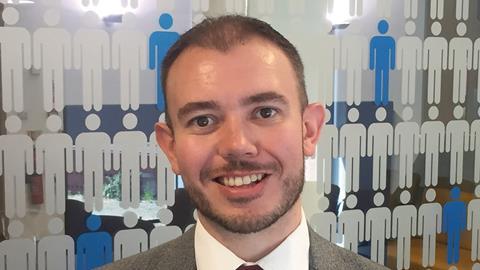Initially I had a career in media and publishing. At 27 I was working for parliament and became fascinated by how legislation is created. I ended up resigning and going back to university to do the GDL.
The job that most prepared me for my career as a solicitor was the eight months I spent as cabin crew for BA. I learned how to manage difficult situations, deliver good client care and emergency childbirth procedures. Two of those skills have proven remarkably useful.
Most of my post-qualification experience has been representing seriously and catastrophically injured clients. It can be a struggle to deal with what has been imposed upon the profession and still do the best for your clients. That aside, the biggest challenge isn’t technical, it’s personal. You need to empathise and deal sensitively with clients but still retain enough detachment to be logical about the prospects of success.
Memorable highlights include getting through my first interim application in chambers when I was a trainee before a judge I’d been told was a bit of a dragon. I got what I wanted and was pleasantly surprised at how helpful and friendly the judge was, taking the time to explain everything in detail to me. It wasn’t until I was leaving that the judge referred to me by my client’s name and I realised why I had been treated with kid gloves.
There is so much focus by the government on reducing both the number of claims and the extent of them, and both of those goals are seen as self-evidently a ‘good thing’. But people do not seem to realise that PI practitioners do so much more for seriously injured clients than provide them with enough compensation for a new kitchen or holiday. We are the ones who can put our clients in touch with the best medical expert opinion, get private treatment in place early enough to make a difference to long-term outcomes, and ensure that clients have the equipment and care they need to make their recovery as quick and as complete as possible.
The improvement in diversity is one of the profession’s most positive changes. The law can be a ‘small c’ conservative profession in many ways and that can often mean an overwhelming supply of white, straight, middle-class solicitors dominating everything. That leads to a real danger of ‘groupthink’. People from different backgrounds and experiences provide different perspectives. There is so much research proving that diversity has a positive effect on performance and profitability. Many firms are beginning to realise this and see the advantages to their bottom line that having a diverse workforce can bring.
I’ve been on the committee of the LGBT Lawyers Division of the Law Society since it was created last year. When the opportunity arose to put my name forward for Council I was eager to do so. We need to ensure that LGBT lawyers do not feel isolated; that they have a professional support network to provide them with the confidence to enable them to be out at work if they so choose; and that they can benefit from professional networking, educational, and career development opportunities no matter whether they work in the heart of the City or in a high street firm.
For more information about the LGBT division, see tinyurl.com/ybmaexas
































1 Reader's comment